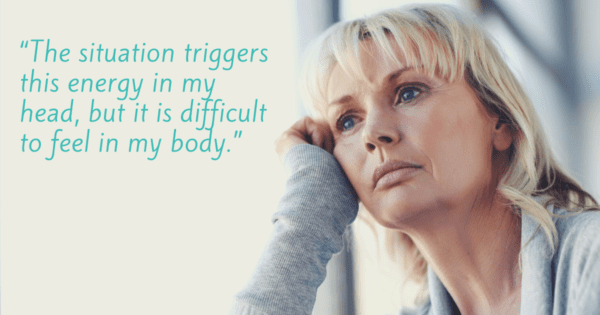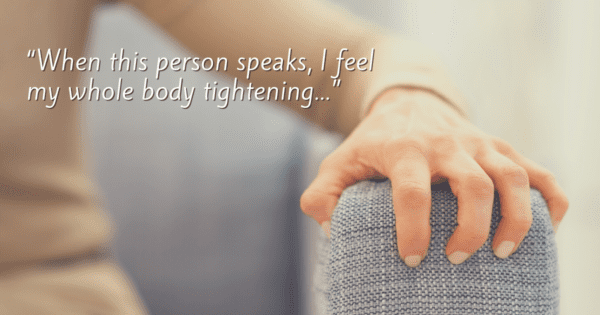~~~~~~~~~~~~~~~~~~~~~~~~~~~~~~~~~~~~~~~~~~
Does Being With an Experience Naturally Bring Change?
~~~~~~~~~~~~~~~~~~~~~~~~~~~~~~~~~~~~~~~~~~
Becky writes: In "Focusing-Oriented
Psychotherapy," Gendlin says that repetitive,
unchanging feelings, or "dead-end" feelings,
"arise and remain unchanged most commonly
because they seem quite clear and final;
there is no murky edge to them that asks to
be explored" (p. 12). My question has to do
with how the quality or
action of "being with" (rather than "being
in") relates to the above. Is it possible to
be in a state of "being with" an experience
and still not be touching a murky edge? Or,
will "being with" an experience (even if
it's one of those dead-end feelings)
naturally lead to a murky edge?
Dear Becky,
I appreciate your grappling with these
concepts. It gives me the opportunity to sit
with them freshly myself.
What comes to me here is that we need to say
very precisely what we mean by "being with an
experience," in a Focusing sense.
We know that "being with" is not getting
caught up in, getting identified with,
pushing away, arguing with... It's none of
those things. But what is it? Is
"being with" just the absence of doing anything?
No, clearly "being with" an experience is
more active than doing nothing. There is a
sensing quality to it. We're sensing what's
here, an active kind of sensing, like
touching a new kind of object, turning it
over in our fingers, really sensing what it's
like.
And in that quality of sensing, we are also
sensing for what's not in words yet, the
freshly arising whole sense of what is there.
If that is "being with" (and I'd say it is)
then "being with" does seek or evoke the
"murky edge," because when we're "being
with," we're actively sensing what's more
than words in this felt experience, right here.

Get helpful ways to feel more empowered, calmer, and better able to handle whatever life brings you (in less than 10 minutes a day!).
OUR VISION
The intention of Focusing Resources is to meaningfully contribute to personal, community, and global emotional health, with the understanding that positive emotional health impacts how fairly we treat each other, how well and quickly we recover from stress and trauma, and how wisely and collaboratively we meet the serious challenges we are all facing.
CONNECT WITH US
Focusing Resources, Inc.
1474 University Ave, #155, Berkeley, CA 94702
T: 510-225-0690 | Email Us
©2024 Focusing Resources, Inc. Photos of Ann and Barbara by: In Her Image Photography & Cia Gould





